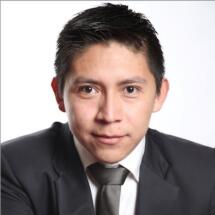New Publications
Daniel Kefeli, Karen M. Siegel, Lucía Pittaluga, Thomas Dietz (2022) Environmental policy integration in a newly established natural resource-based sector: the role of advocacy coalitions and contrasting conceptions of sustainability, Policy Sciences, First published online: 28 November 2022, https://doi.org/10.1007/s11077-022-09485-z
Niklas Wagner, Sara Velander, Lisa Biber-Freudenberger, Thomas Dietz (2022) Effectiveness Factors and Impacts on Policymaking of Science Policy Interfaces in the Environmental Sustainability Context, Environmental Science and Policy (forthcoming)
Thomas Dietz, Laura Deal, Lisa Biber-Freudenberger, Jan Börner (2022): Is private sustainability governance a myth? Evaluating major sustainability certifications in primary production: A mixed methods meta-study, Ecological Economics 201, 107546, https://doi.org/10.1016/j.ecolecon.2022.107546
Andrea Estrella Chong, David Navichoc, Bernard Kilian, Thomas Dietz (2022): Impact pathways of voluntary sustainability standards on smallholder coffee producers in Honduras: Price premiums, farm productivity, production costs, access to credit, World Development Perspectives 27, 100435, https://doi.org/10.1016/j.wdp.2022.100435
Melisa Deciancio, Karen M Siegel, Daniel Kefeli, Guilherme de Queiroz Stein, Thomas Dietz (2022): Bioeconomy governance and (sustainable) development, in: Melisa Deciancio, Pablo Nemiña and Diana Tussie (Eds) Handbook on the Politics of International Development, 329-345, Edward Elgar Publishing
Thomas Dietz, Jan Börner, Jan Janosch Förster, Joachim von Braun (2022) Governance of the Bioeconomy in Global Comparison, in: Daniela Thrän, Urs Moesenfechtel (Eds) The bioeconomy system, 333-349, Springer
Kare M Siegel, Melisa Deciancio, Daniel Kefeli, Guilherme de Queiroz‐Stein, Thomas Dietz (2022) Fostering Transitions Towards Sustainability? The Politics of Bioeconomy Development in Argentina, Uruguay, and Brazil, Bulletin of Latin American Research, First published online: 09 March 2022, https://doi.org/10.1111/blar.13353**
Sascha Stark, Lisa Biber-Freudenberger, Thomas Dietz, Neus Escobar, Jan Janosch Förster, James Henderson, Natalie Laibach, Jan Börner (2022) Sustainability implications of transformation pathways for the bioeconomy, Sustainable Production and Consumption, 29:1, https://doi.org/10.1016/j.spc.2021.10.011**
Thomas Dietz, Janina Grabs (2021) Additionality and Implementation Gaps in Voluntary Sustainability Standards, in: New Political Economy, first published online: 18 February 2021, https://doi.org/10.1080/13563467.2021.1881473**
Thomas Dietz, Jan Börner, Jan Janosh Förster, Joachim von Braun (2020) Governance der Bioökonomie im weltweiten Vergleich, in: D. Thrän/U. Moesenfechtel (Hrsg.) Das System Bioökonomie, Springer, https://link.springer.com/chapter/10.1007/978-3-662-60730-5_23
Lisa Biber‐Freudenberger, Candan Ergeneman, Jan Janosch Förster, Thomas Dietz, Jan Börner (2020) Bioeconomy futures: Expectation patterns of scientists and practitioners on the sustainability of bio‐based transformation, Sustainable Development, https://doi.org/10.1002/sd.2072**
Thomas Dietz (2020) The rule of law effects of commercial arbitration in a socio-legal perspective, in: T. Schulz/F. Ortino (Eds) The Oxford Handbook of International Arbitration DOI: 10.1093/law/9780198796190.003.0028*
Thomas Dietz, Marius Dotzauer, Edward S. Cohen (2019) The legitimacy crisis of investor-state arbitration and the new EU investment court system, Review of International Political Economy, first published online: 02 Jul 2019, https://doi.org/10.1080/09692290.2019.1620308
Thomas Dietz, Janina Grabs, Andrea Estrella Chong (2019) Mainstreamed voluntary sustainability standards and their effectiveness: Evidence from the Honduran coffee sector, in: Regulation and Governance, first published online: 28 February 2019, https://doi.org/10.1111/rego.12239
Thomas Dietz, Andrea Estrella Chong, Janina Grabs, Bernard Kilian (2019) How Effective is Multiple Certification in Improving the Economic Conditions of Smallholder Farmers? Evidence from an Impact Evaluation in Colombia’s Coffee Belt, The Journal of Development Studies, first published online: 09 July 2019, https://doi.org/10.1080/00220388.2019.1632433
Thomas Dietz, Jennie Auffenberg, Janina Grabs, Andrea Estrella Chong, Bernard Kilian (2018) The Voluntary Coffee Standard Index (VOCSI). Developing a composite index to assess and compare the strength of Mainstream Voluntary Sustainability Standards in the global coffee industry, in: Ecological Economics (150), 72-87, https://doi.org/10.1016/j.ecolecon.2018.03.026
Thomas Dietz, Jan Börner, Jan Janosh Förster, Joachim von Braun (2018) Governance of the bioeconomy: A global comparative study of national bioeconomy strategies, in: Sustainability 10/9, 3190. https://doi.org/10.3390/su10093190
















